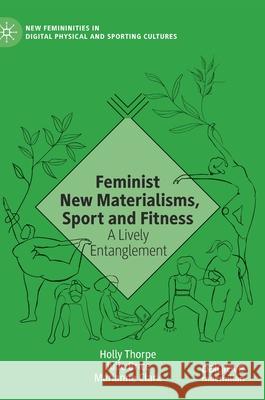Feminist New Materialisms, Sport and Fitness: A Lively Entanglement » książka
topmenu
Feminist New Materialisms, Sport and Fitness: A Lively Entanglement
ISBN-13: 9783030565800 / Angielski / Twarda / 2020 / 268 str.
Kategorie:
Kategorie BISAC:
Wydawca:
Palgrave MacMillan
Seria wydawnicza:
Język:
Angielski
ISBN-13:
9783030565800
Rok wydania:
2020
Wydanie:
2020
Numer serii:
000826296
Ilość stron:
268
Waga:
0.49 kg
Wymiary:
21.01 x 14.81 x 1.75
Oprawa:
Twarda
Wolumenów:
01
Dodatkowe informacje:
Wydanie ilustrowane











